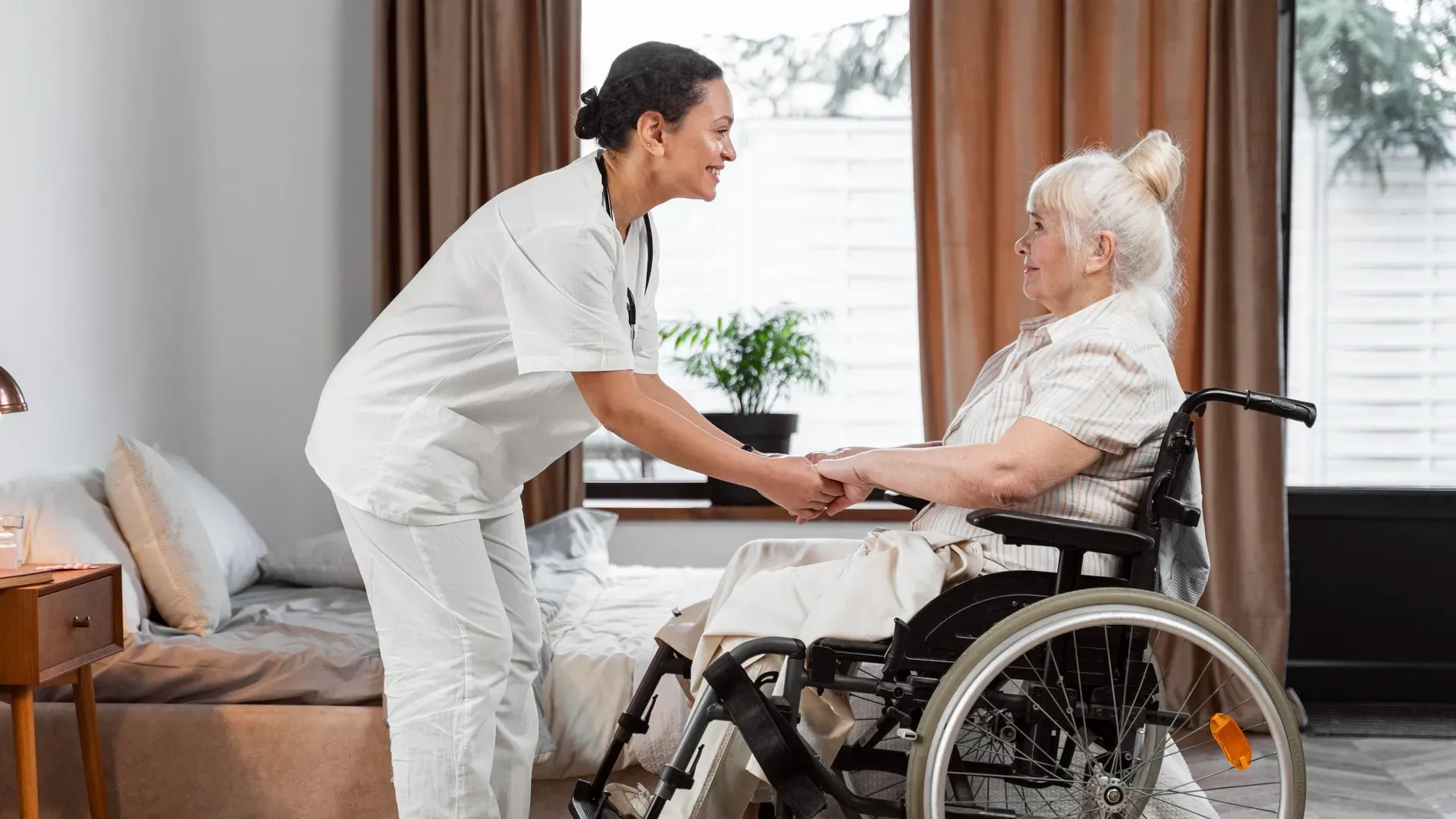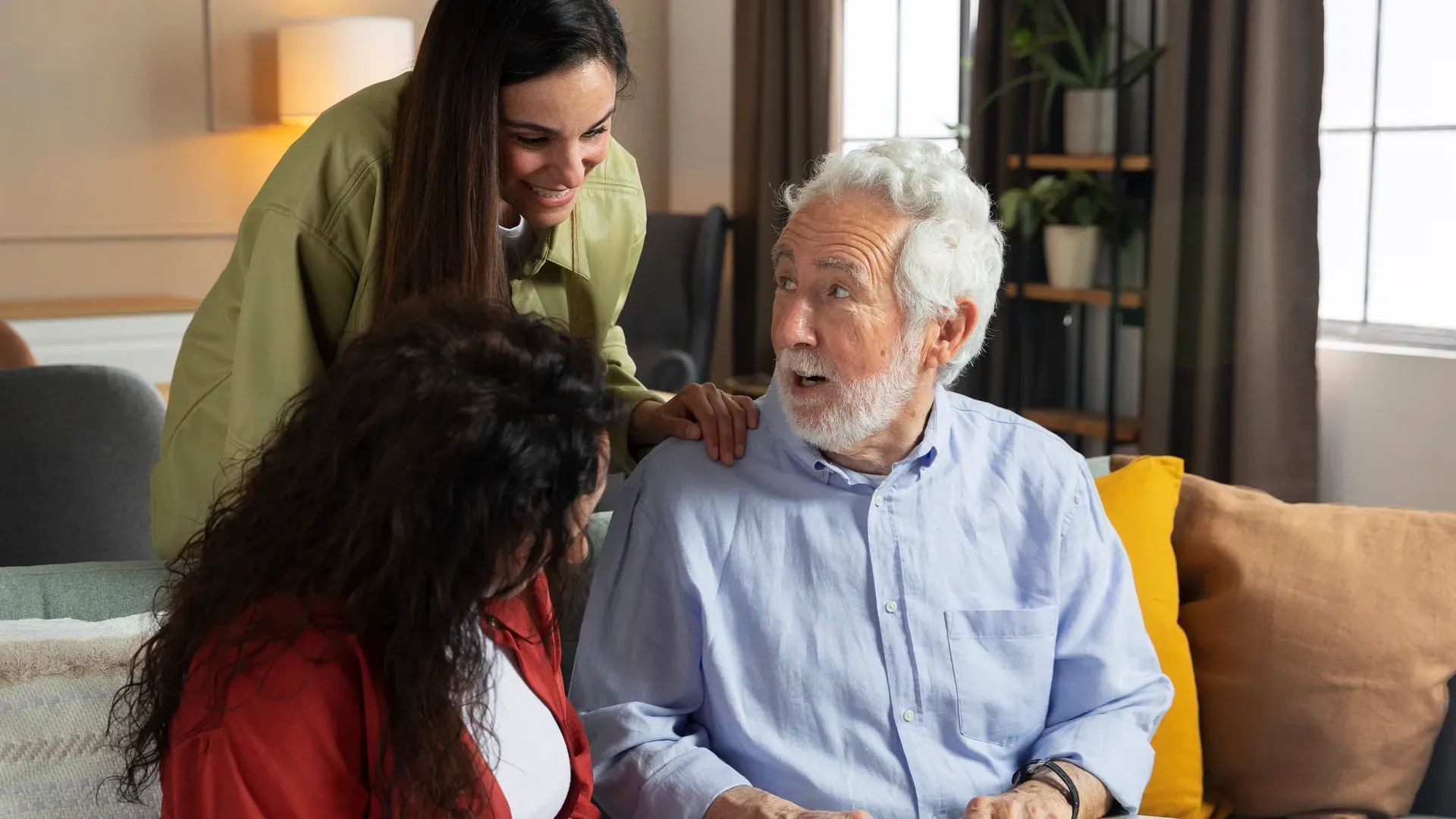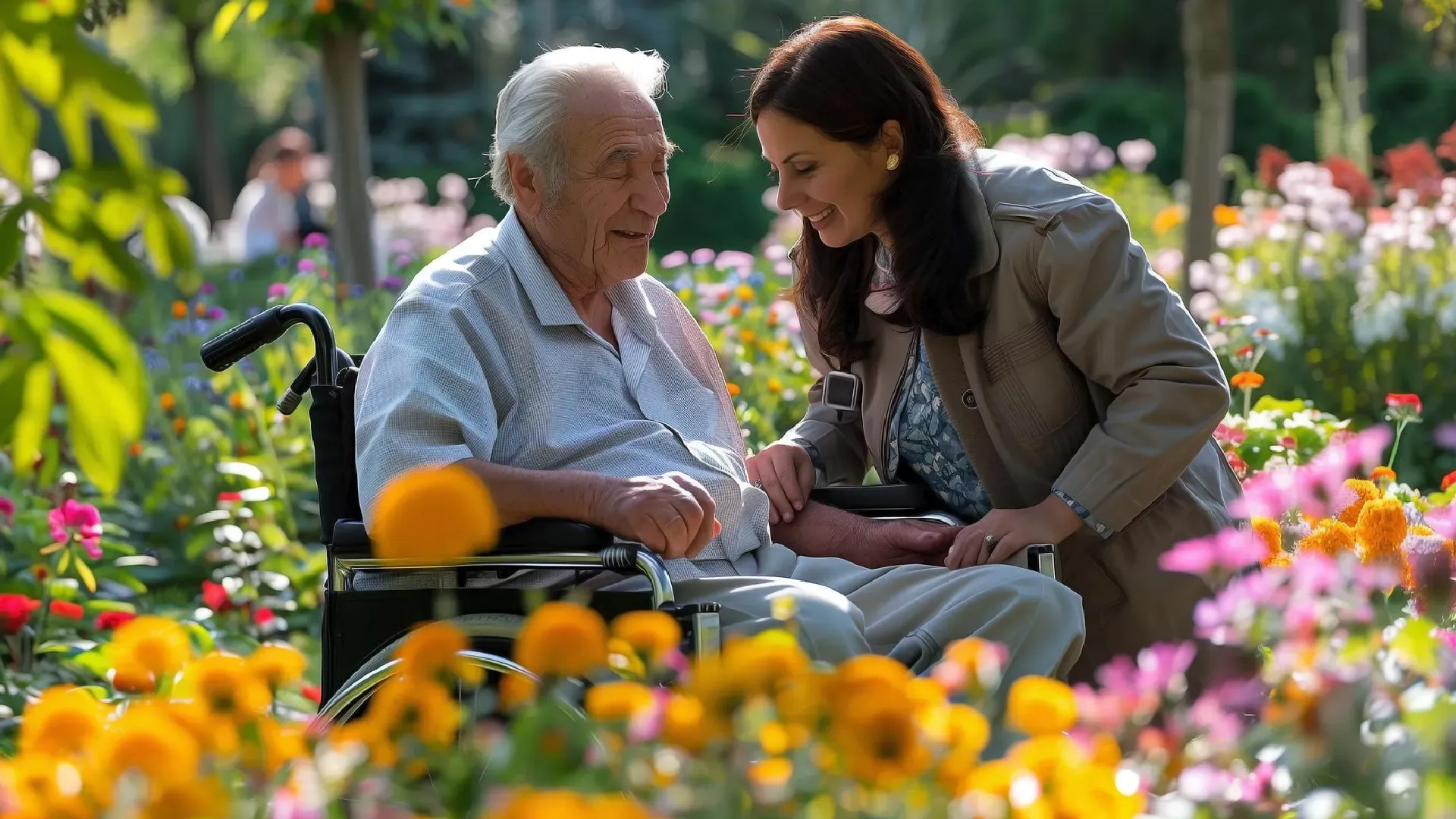Empowering Seniors: Promoting Independence with Compassionate Care
Empowering Seniors: Promoting Independence with Compassionate Care
Ensuring dignity and independence for seniors has emerged as a cornerstone in the pursuit of a more compassionate society. We recognise the profound difference that dignity and a sense of autonomy can make in the lives of older adults, emphasising not just longevity but quality of life. This growing awareness underlines the critical need for professional eldercare and senior companionship services that not only support the physical needs of seniors but also nurture their spirit, promoting a life lived with purpose and joy.
In this article, we delve into the facets of empowering our elders through various means. We explore the significance of senior empowerment, the creation of a compassionate care environment, and how practical support can promote independence. Additionally, we will discuss the vital role of community and social connections, the benefits of educating seniors about their own care, and the importance of involving them in the decision-making process. Our aim is to offer a comprehensive overview that emphasises the importance of upholding dignity and independence for seniors through thoughtful, professional eldercare and enriching senior companionship services.
Understanding the Importance of Senior Empowerment
Empowering seniors is crucial for enhancing their quality of life and maintaining their dignity and independence. Here’s a closer look at why senior empowerment matters:
1. Enhancing Well-being and Health
Empowerment allows older adults to learn, discuss, decide, and act on their own decisions. This autonomy contributes significantly to their well-being and health, positively impacting their families, communities, and society at large. By involving seniors in decisions about their care, as seen at Estia Health, they retain control over daily choices, from meal selections to activity participation, fostering a sense of ownership and self-respect.
2. Addressing Disempowerment
Many seniors feel disempowered due to age, health issues, or life circumstances. Providing support that fosters empowerment can counter feelings of helplessness. This involves respecting their rights and recognitions that these rights do not diminish with age or cognitive abilities. Ensuring that seniors have the freedom to make choices about their lives respects their basic human rights and acknowledges their lifelong contributions to society.
3. Promoting Independence and Control
Independence is closely linked to a senior’s sense of identity and self-worth. Allowing them to make even small decisions daily can significantly impact their mental health and happiness. For instance, choosing what to wear or eat helps maintain their individuality, which is crucial for their mental well-being. Moreover, involvement in significant decisions, like changes to living situations or participating in social activities, reinforces their autonomy.
4. Combating Loneliness and Isolation
Maintaining social connections and community support is vital for seniors’ mental health. Loneliness can lead to feelings of hopelessness and depression. Empowering seniors to make decisions about social interactions and encouraging hobbies and interests help them stay connected and engaged, preserving their mental agility and emotional health.
5. Encouraging Physical and Mental Activity
Physical and mental activities are essential for seniors to manage independence. Activities that promote mobility, such as safe home environments and accessible social gatherings, empower seniors. Cognitive activities, like decision-making and hobby participation, are crucial for mental health and help maintain memory and cognitive functions.
Empowering seniors is not just about providing care but about respecting their lifetime of experience and wisdom. By supporting their independence and decision-making capabilities, we honor their contributions and enhance their quality of life.
Creating a Compassionate Care Environment
Recognising Individual Needs
- Understanding Unmet Needs: It's essential we comprehend the unmet needs of seniors, especially those with dementia. Our approach involves adjusting daily living activities to align with their past and present interests, helping maintain their sense of identity and dignity.
- Barrier-Free Environment: We strive to provide an environment free from physical and social barriers, enhancing mobility and interaction, which are crucial for promoting independence and emotional well-being.
- Customised Care Plans: Drawing on personal histories, we tailor care plans that respect the unique life stories of each senior, ensuring their care is as individual as they are.
Building Trust and Respect
- Consistent Communication: Regular, clear communication helps build trust. We ensure that our seniors understand their care plans and any changes that might occur, fostering a stable environment of trust.
- Respecting Privacy and Independence: Privacy is paramount; we respect it in all interactions, ensuring that personal information is handled with the utmost confidentiality and sensitivity.
- Empathetic Interaction: Every interaction is an opportunity to demonstrate empathy and respect. We focus on positive attributes, reduce embarrassment, and support seniors in presenting themselves in the manner they wish to be seen.
By focusing on these areas, we create a compassionate care environment that not only addresses physical needs but also nurtures the mental and emotional health of our seniors, allowing them to feel respected, understood, and valued.
Promoting Independence through Practical Support
Home Care Services
Home care services play a pivotal role in maintaining the independence of seniors by providing essential support within the comfort and familiarity of their own homes. These services range from assistance with daily living activities like cleaning, laundry, and meal preparation to more comprehensive healthcare services including nursing care, medication management, and physiotherapy. Such support not only ensures safety and comfort but also enhances the overall well-being of seniors, allowing them to stay connected with their community through transportation to appointments and social outings.
Assistive Technologies
The integration of assistive technology in the homes of elderly individuals significantly boosts their ability to live independently. Devices such as smart lighting, reminder alarms, and automatic pill dispensers help improve the safety, accessibility, and convenience of their living environment. For those with dementia, technologies like GPS trackers and fall detectors provide crucial support, ensuring safety while fostering independence. These tools are designed to assist with daily tasks and enhance the quality of life for seniors, allowing them to maintain their dignity and autonomy.
Physical and Mental Activities
Encouraging physical and mental activities is essential for promoting independence among seniors. Regular engagement in physical activities like walking, tai chi, or yoga helps maintain mobility and strength, which are crucial for independence. Mental stimulation through activities such as puzzles, reading, or learning new skills keeps the mind sharp and supports cognitive functions. Additionally, social interactions play a vital role in maintaining emotional health; hence, involving seniors in community events or volunteer activities can significantly enhance their sense of purpose and well-being.
The Role of Community and Social Connections
Combatting Isolation
- Addressing Loneliness: Research highlights the profound impact social isolation can have on seniors, increasing risks of physical illness and mental health challenges such as depression. Engaging seniors in community activities helps mitigate these risks by fostering essential social connections.
- Enhancing Mental Health: Social activities are vital for mental stimulation and emotional support, helping to improve memory functions and reduce feelings of loneliness. Regular social interaction is key to maintaining cognitive health and overall emotional well-being.
Fostering Social Engagement
- Encouraging Active Participation: Community involvement gives seniors opportunities to engage actively in society, enhancing their sense of belonging and self-worth. Activities like volunteering or participating in social groups provide meaningful interactions that boost morale and mental health.
- Promoting Health and Longevity: Socially active seniors tend to enjoy better physical health and a higher quality of life. Community and social participation are crucial for encouraging a lifestyle that supports healthy ageing, reducing the need for healthcare interventions.
Educating and Involving Seniors in Their Care
Personalised Care Plans
- Tailored Health and Wellness Assessments: We initiate with a thorough assessment of each senior's physical, mental, and emotional health. This comprehensive evaluation allows us to craft personalised care plans that address individual needs and preferences, ensuring that each plan is as unique as the individuals we care for.
- Collaborative Plan Development: The care plans are developed in collaboration with healthcare professionals, the seniors themselves, and their families. This inclusive approach ensures that all aspects of the senior's life and preferences are considered, making the plans not only comprehensive but also deeply respectful of their autonomy.
- Regular Updates and Revisions: To ensure that the care remains relevant and effective, we regularly review and update the plans. This flexibility allows us to adapt to changing health conditions, preferences, and emerging needs, thereby maintaining the relevance and effectiveness of the care provided.
Ongoing Education and Empowerment
- Educational Workshops and Resources: We provide ongoing education on various aspects of health and wellness tailored to the needs of seniors. These resources help them understand the choices available and the implications of each decision, empowering them with the knowledge to participate actively in their care.
- Support for Decision-Making: Seniors are encouraged and supported to make their own decisions regarding their health and care. By providing them with the necessary tools and information, we ensure they feel confident and capable in their decision-making processes.
- Engagement in Social Decision-Making (SDM): We promote active participation in SDM, where seniors, their family carers, and healthcare providers work together. This collaborative approach not only empowers but also respects and honours their contributions, enhancing their sense of agency and involvement in their own care.
By focusing on personalised care plans and ongoing education, we empower seniors to take an active role in their care, enhancing their independence and quality of life.
Conclusion
Throughout this article, we have explored the multifaceted approach to empowering seniors, underscoring the significance of promoting independence through compassionate care. By embracing strategies that include involving seniors in the decision-making process, providing practical support for daily living, and fostering community and social connections, we not only enhance the quality of life for our elders but reaffirm their valued place in society. The comprehensive overview presented highlights the critical importance of upholding dignity and fostering autonomy among seniors, revealing how professional eldercare and senior companionship services can play a pivotal role in achieving these goals.
As we move forward, it is imperative that we continue to advocate for and implement eldercare practices that respect the agency, preferences, and dignity of seniors. The broader implications of such efforts extend beyond the immediate benefits to seniors themselves, impacting families, communities, and society as a whole. Encouraging further research, development, and application of innovative care strategies will ensure that our ageing population receives the respect, care, and support they deserve, enabling them to lead fulfilling lives with dignity and independence.











